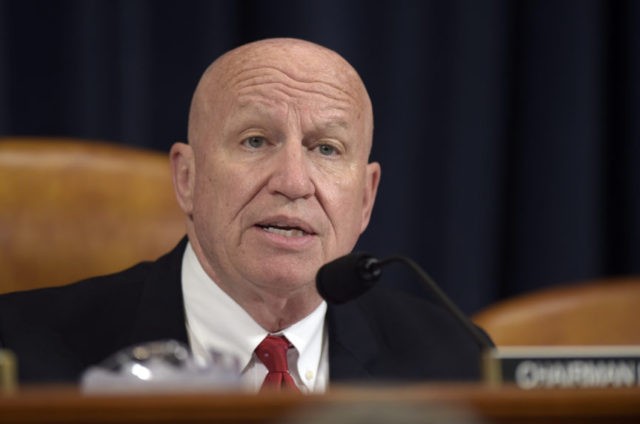WASHINGTON, D.C. — One of the most prevalent tax reform messages that came out of five business leaders testifying on Capitol Hill Thursday was the absolute urgency of passing tax legislation for not only their companies and owners, but their employees, quality jobs, the American economy and U.S. businesses’ ability to compete internationally.
The House Ways and Means Committee hearing on tax reform opened with Chairman Kevin Brady’s statement which focused on growing the American economy with job-creating tax reform. “America now has one of the most costly, unfair, and uncompetitive tax systems in the world. The need for pro-growth tax reform is urgent.”
Brady pinpointed high tax rates levied on American businesses as a cause of good-paying jobs leaving the U.S. for other countries. The chairman went on to say, “President [Donald] Trump is leading the charge for bold tax reform that will unleash the growth of jobs and paychecks nationwide.”
Brady cited a current corporate tax rate of 35 percent and up to 44.6 percent for small businesses.
The five witnesses included Senior Executive Vice President and Chief Financial Officer of AT&T Inc. John J. Stephens; Chief Alignment Officer for Atlas Tool Works, Inc. Zachary Mottl; Chairman and Chief Executive Officer of Emerson Electric Co. David N. Farr; President and Chief Executive Officer of S&P Global Inc. Douglas L. Peterson, and Chairman of Willett Advisors LLC Steven Rattner.
Some of the potential tax changes discussed included lowering corporate tax rates, simplifying the tax system, cash versus accrual accounting, research and development incentive, full and immediate expensing and border tax.
Several times business leaders testified that tax reform needs to be accomplished urgently, even if the result isn’t perfect.
Rattner offered a somewhat more reserved response on the question of urgency as he emphasized that Congress needs to get tax reform right. In his opening statement, he said that tax reform should be deficit neutral, that reform should not diminish the systems progressiveness, that it should enhance growth and investment, and that it should improve America’s competitive position in the world.
Rattner directly criticized President Trump’s tax plan outline, “the proposal by President Trump falls short in several important respects.”
Throughout the hearing, it became clear that Democrats favored questioning one of the witnesses, former Obama Administration auto bailout head Mr. Steven Rattner, Chairman of Willett Advisors, LLC. Self-described “Wall Street guy” Rattner served as leader of the 2009 Obama Administration auto bailout task force under the supervision of Treasury Secretary Tim Geithner and Chief Economic Adviser for the White House, Larry Summers.
Stephens told the committee that AT&T, “would invest more with immediate expensing.”
Stephens urged the committee that while urgency is important “let’s not let perfect be the enemy of the good, we understand there are tradeoffs.”
Peterson pointed to a need for lower corporate tax rate to level the playing field and increase U.S. competitiveness internationally. He put strong emphasis on the effective tax rates of 30 percent levied on U.S. companies compared to rates in the teens for companies in other countries. He spoke of a “highly unfair system that undermines competitiveness” and called the U.S. tax code “antiquated.”
A prepared statement from Farr called the current U.S. tax, “U.S. tax code is a significant negative drag on economic growth and competitiveness.” He suggested a 15 percent corporate tax rate, lower rates for pass-through entities, moving to a modern territorial international tax system, maintaining a strong R&D incentive, and a robust capital cost-recovery system.
Following the hearing Peterson told Breitbart News:
I was encouraged by the bipartisan discussion today in the Ways and Means Committee on tax reform. The U.S. federal tax code was last updated over 30 years ago. We have a markedly different economy today, and for U.S. businesses of all sizes to remain competitive, create jobs and innovate and invest in the United States, Congress MUST be bold and enact permanent, comprehensive, long-term reform to our tax code
During the hearing, Ohio Rep. Pat Tiberi asked the panel of witnesses about the importance of cost of delay and whether it impacts the middle class. Stephens said yes. Mottl replied that his employees need tax reform now. Peterson said, “the cost of delay is also the cost of investment.” Rattner admitted that no reasonable person could disagree that delay has cost millions of jobs and million of dollars.
Follow Michelle Moons on Twitter @MichelleDiana

COMMENTS
Please let us know if you're having issues with commenting.